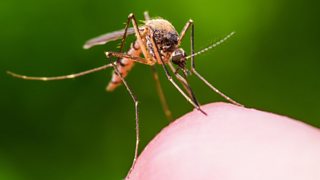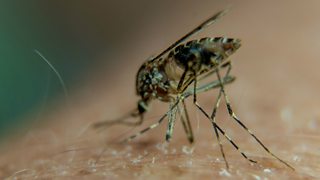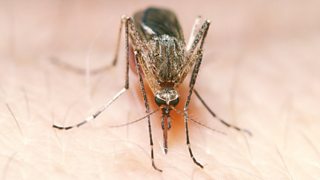The price of stopping malaria: is eradicating mosquitoes ethical?
9 October 2018
“If you have a technology that has the potential to save millions of lives, then you need to think about the ethics of not using it.”
Scientists have created a ‘gene drive’: a piece of genetic code that stops female mosquitoes from producing eggs. They also manipulate the laws of inheritance so that almost 100% of offspring become carriers of the new gene, instead of the 50% that would naturally.
Professors James Miller and Peter Morris spoke to Good Morning Scotland about the pros and cons of this new form of gene technology with the potential to wipe out Anopheles gambiae, the breed of mosquito that spreads malaria.
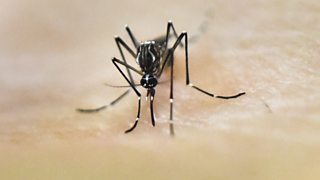
A ‘moral obligation’
Given that the gene technology has the potential to save (human) lives – 445,000 people died from Malaria in 2016 alone – Professor James Miller felt it was a ‘moral obligation’ to eradicate the mosquito.
He also described a situation where the same technology could be used nefariously: bioterrorists could infect mosquitoes with viruses capable of spreading to humans. To Prof Miller, that qualified the need to eradicate the mosquito even further.
Asked if he could see people objecting to the culling of mosquitoes, Professor Miller responded,“It’s as likely as the world deciding, ‘Hey, the world is better off with smallpox’.”
The downsides of altering genes
Professor Peter Morris explained that experiments involving gene technology have only been used to eliminate a captive population of mosquitoes, so scientists don’t know for certain how it will work in nature.
“We do have to look at food chains; mosquitoes are food for fish, bats and birds. Also, male mosquitoes pollinate plants.”
As well as the risk of modified genomes crossing into related species of mosquitoes, Professor Morris said it could be difficult to measure the effect of altering the genes.
“You would effectively have to have a census of the mosquitoes to see if it was successful.”
Creating the ‘gene drive’
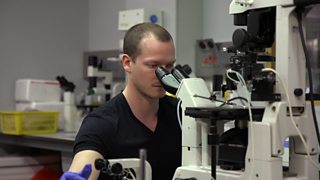
Dr Andrew Hammond of Imperial College London was part of a research project that aimed to modify a mosquito’s genome in a way that made it spread over successive generations.
The modified ‘gene drive’ is passed on to nearly 100% of a mosquito’s offspring: it’s programmed to implant copies of itself into the other strands of its host’s DNA. This bypasses the usual law of nature where only half of the offspring would inherit the modified gene.
He claimed the entire mosquito population in Africa could be affected in a couple of years, meaning malaria could be eliminated in a relatively short space of time.
Related Links
More mosquitoes at the ����ý
Latest features from ����ý Scotland
-
![]()
'Wild swimming helps me process the grief of losing my son'
The benefits of cold water therapy.
-
![]()
Winter adventures are appealing, but an expert advises caution
Trips in winter require particular knowledge and skills.
-
![]()
The rescuers: Why volunteers risk their lives in mountain emergencies
Landward meets members of the Cairngorm Mountain Rescue Team.
-
![]()
‘Look for the light’ – practical tips to help you through another winter with SAD
Useful advice and tips to combat low moods at this time of year.
-
![]()
How you could be a binge drinker without even knowing
Binge drinking is classed as fewer units than many people may realise.
-
![]()
How chocolate biscuits and drama classes helped one man leave prison behind
The healing power of creativity.
-
![]()
'When people believe in you, it’s life-changing'
Author Graeme Armstrong revisits the man who helped turn his life around.
-
![]()
The 'breath-taking' display of US birds swept on to British soil
Recent storms have brought rare birds to our shores.
-
![]()
Six things we learned about Alan Cumming on Take the Floor (Spoiler: includes accordions)
The actor spoke to Take the Floor's Gary Innes.
-
![]()
How street gangs trap young men in a dangerous cycle of violence
The almost inescapable pull of life in a gang.
-
![]()
Why stylist Gok Wan believes there's no such thing as bad fashion
The fashion expert says we should stop following rules and do what feels right.
-
![]()
Is sending a CV still the right way to apply for a job?
They've been central to job applications for years, but are they worth it?
